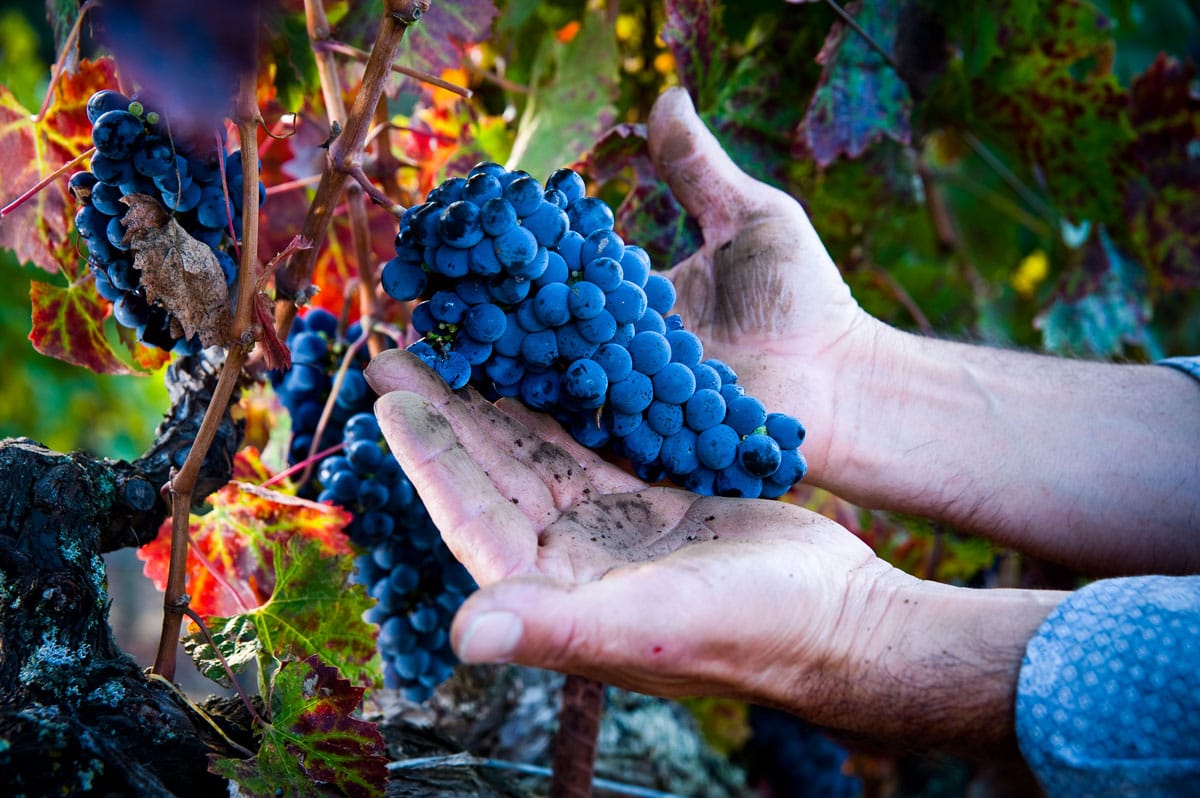
Wine Culture Magazine

istockphoto.com photo
When the harvest moon fills the sky on September 24, moon children everywhere will be laughing, crying, or both.
While Austrian intellectual Rudolf Steiner wasn’t ruled by the moon, he believed that celestial energy affects plants and animals. When asked in 1924 to help farmers cultivate crops without chemicals, he suggested a regime to maximize the living energy of a farm, focusing on soil health. This was the birth of biodynamic farming. Today, biodynamic practices are flourishing in old and new world vineyards.
But how do you recognize a biodynamic wine?
In the vineyard, you may see a horse pulling a plow and you’ll definitely notice the attention on the soil, the livestock and the ecosystem, not just vine health. In the winery, you’ll hear about ambient yeast, wild ferments, extended lees contact, no fining or filtering and minimum additions of sulphites.
In the bottle, look for the biodynamic certification label: either Demeter (the original) or Biodyvin (a newer Euro-driven body). Demeter certification, named for the Greek goddess of the harvest, is a global brand in 50 countries. Generally, organic certification is required before a winery can begin the rigorous four-year process of inspections and audits to become bio-certified.
Only one per cent of all wine is certified biodynamic. Internationally, that includes Domaine Zind-Humbrecht in Alsace; Champagne Fleury; Domaine Tissot in Jura; Domaine de Marcoux from the Rhône Valley; Felton Road in New Zealand; and Sonoma’s Benziger Family Winery.
In Canada, there are three Demeter-certified biodynamic wineries. Southbrook Vineyards in Niagara-on-the-Lake, led by the Okanagan Valley’s Ann Sperling, was the first and has been certified biodynamic since 2008, Tawse Winery on the Niagara Escarpment has been certified since 2009 and Kelowna’s Summerhill Pyramid Winery since 2012. As Summerhill general manager Ezra Cipes says, “Here, the idea is to be pure, authentic and unique.”
Several other B.C. wineries are working toward biodynamic certification, including Ann Sperling’s organic Sperling Vineyards in East Kelowna and, in the Similkameen, Clos du Soleil and Corcelettes Estate Winery.
Biodynamic wines are often considered “alive” in the glass; here are five to try that are either certified or being made according to biodynamic practices.
Summerhill Pyramid Winery Pinot Noir 2018, Demeter Certified
(Kelowna, $3): Muddled cherries, wet Kelowna rocks, spice, earth.
Clos du Soleil Cabernet Franc Winemaker Series Estate Vineyard 2016
(Similkameen, $44): Fresh red cherry, red plum, black currant, green herbs.
Sperling Vineyards Old Vines Riesling 2014
(East Kelowna, $35): Minerality, petrol, bruised apples, lime zest.
Domaine Zind-Humbrecht Muscat 2015, Biodyvin Certified
(Alsace, $39): Pink grapefruit, oranges, stone fruit, passionfruit.
Champagne Fleury Blanc de Noirs NV, Demeter Certified
(Champagne, $80): Black cherry brioche, wild strawberry cream, mushroom, citrus zest.

Barb Wild is the Good Wine Gal, and her goal is to help people discover what they like—without snobbery. Follow Good Wine Gal’s life of wine study, wine tastings and wine travel at goodwinegal.ca.

Barb Wild is the Good Wine Gal, and her goal is to help people discover what they like—without snobbery. Follow Good Wine Gal’s life of wine study, wine tastings and wine travel at goodwinegal.ca.
Copyright © 2025 - All Rights Reserved Vitis Magazine